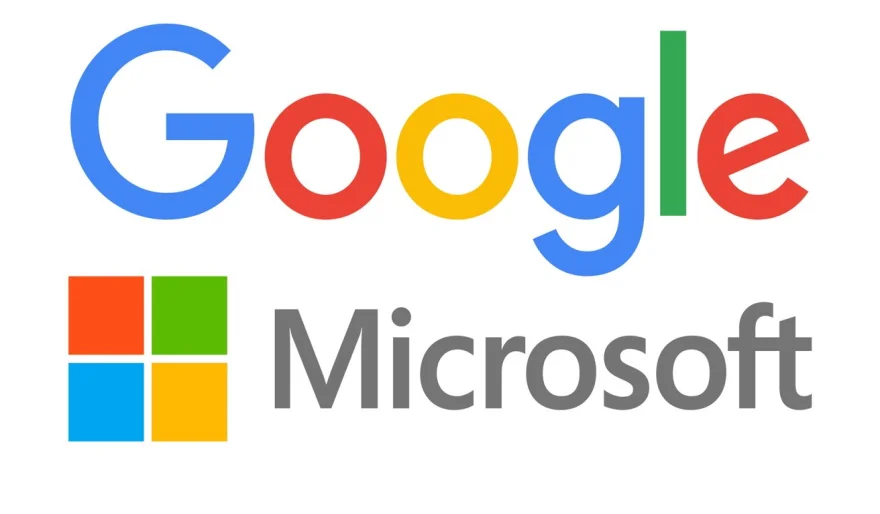Stay Ahead of the Curve
Latest AI news, expert analysis, bold opinions, and key trends — delivered to your inbox.
Microsoft's AI Gambit Shows Promise, But Google Stays in the Game
6 min read Alphabet's CEO Sundar Pichai and Microsoft's CEO Satya Nadella are optimistic about monetizing generative AI tools. Both companies exceeded quarterly sales and profit expectations, with Alphabet announcing plans for share buybacks and dividends. April 26, 2024 06:04
The race for artificial intelligence (AI) dominance is heating up, and recent developments highlight the contrasting strategies of tech titans Microsoft and Google.
Microsoft's Strategic Payoff
- AI Focus in Southeast Asia: Microsoft's CEO visit and commitment to AI expansion in Southeast Asia seem to be paying off.
- Cloud Adoption Boost: Their Azure cloud platform is gaining traction as a hub for businesses to develop and deploy AI applications in the region.
- AI for All Approach: Microsoft's focus on offering accessible AI tools and resources seems to be resonating with businesses and developers in Southeast Asia.
Why Southeast Asia Matters
- Rapid Growth: The region boasts a young, tech-savvy population with a high adoption rate for new technologies.
- Untapped Potential: Many Southeast Asian nations are still in the early stages of AI development, presenting a vast market for Microsoft.
- Government Support: Supportive government policies in Southeast Asia are creating a favorable environment for AI development.
Google Remains Unfazed
- Established Player: Google is already a dominant force in AI research and development globally.
- Focus on Cutting-Edge Tech: Google might be prioritizing advancements in fundamental AI research, aiming for breakthroughs that could revolutionize the field.
- Indirect Southeast Asian Impact: While Google might not be as vocal about Southeast Asia specifically, their broader AI research advancements could still benefit the region indirectly.
The Looming Rivalry
- Different Approaches: Microsoft's focus on regional adoption and Google's emphasis on fundamental research represent contrasting approaches.
- Competition Heats Up: Both companies are vying for dominance in the AI landscape, and Southeast Asia is becoming a key battleground.
- Benefits for the Region: This competition will likely accelerate the overall growth and adoption of AI in Southeast Asia.
What This Means for the Future
- A Thriving AI Ecosystem: With Microsoft's push for accessibility and Google's cutting-edge research, Southeast Asia is well-positioned to develop a robust AI ecosystem.
- Focus on Local Needs: AI solutions addressing regional challenges in agriculture, education, and infrastructure are likely to emerge.
- A More Connected Southeast Asia: AI-powered applications could improve communication, collaboration, and efficiency across the region.
Microsoft's strategic focus on Southeast Asia seems to be yielding positive results, but Google remains a strong contender with its established AI research prowess. The contrasting approaches highlight the multifaceted nature of the AI race, and Southeast Asia is sure to benefit from the competitive landscape.
User Comments (0)
No comments added yet.
Comments will not be approved to be posted if they are SPAM, abusive, off-topic, use profanity, contain a personal attack, or promote hate of any kind.



















 AI Agents
AI Agents